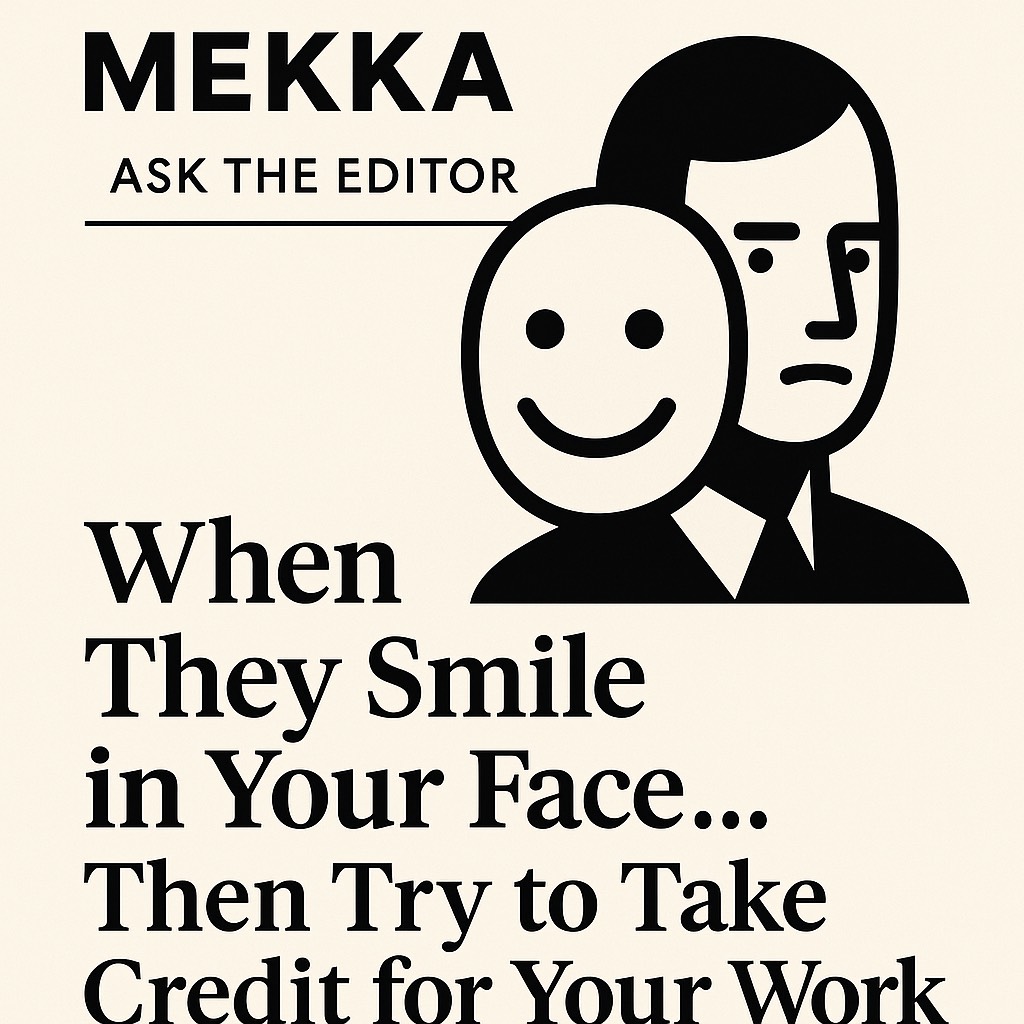
Every so often, we receive a message from a reader that echoes the quiet frustration many of us carry in silence. One message, in particular, stood out—not because it was shocking, but because it was so familiar.
This reader was paired with a coworker from another department to work on a project. At first, it seemed harmless. The coworker was overly friendly, asking a lot of questions and dropping lines like, “If we’re working together, you’ve gotta let me in.” The reader, being open and collaborative, started sharing more—tools, techniques, insight they had learned over years of study and experience.
But then it shifted.
Suddenly, the coworker wasn’t just asking questions—they were copying their moves, mimicking their tone, even presenting ideas the reader developed as their own. And here’s the kicker: this person hadn’t done any of the heavy lifting. They simply attached themselves to the project like a leech, inching closer to the spotlight with every meeting.
The reader realized too late what was happening. What started off as teamwork turned into identity theft in the workplace—minus the paperwork.
To make things worse, the coworker carried themselves like a person of deep integrity, constantly talking about faith and values, all while quietly taking credit for things they didn’t earn. That contradiction hit hard. The reader wasn’t just dealing with a work issue—they were dealing with deception wrapped in a smile.
And the question they asked us was simple, but powerful: Why do people do this? Why can’t folks just be real about who they are and what they’re trying to learn instead of pretending to be something they’re not?
Here’s what I’ll say, as someone who’s been around long enough to recognize this pattern from a mile away:
People will always reveal themselves. The question is—will you be paying attention when they do?
Sometimes it’s insecurity. Sometimes it’s ego. And sometimes it’s straight-up strategy. But whatever the reason, their actions aren’t about you. They’re about their own need to feel significant, even if it means attaching themselves to someone else’s excellence.
So, here’s the real:
- You don’t owe everyone full access. Being kind and collaborative doesn’t mean being naive. Protect your work. Share wisely.
- Documentation is your friend. Keep track of what you’re doing. Send recaps. Keep receipts.
- Trust your gut. When it feels off, it usually is. Don’t talk yourself out of what you already know.
- Don’t let them make you doubt your value. People can imitate your flavor, but they can’t recreate your recipe. The real ones always stand out in the end.
To the reader who wrote in: thank you. Your story is a mirror for many who’ve dealt with copycat colleagues and quiet opportunists. Your voice reminds us that while the world may be full of pretenders, there’s only one you. And no matter how much they try to imitate, they can never duplicate your journey, your growth, or your authenticity.
Keep doing the work. The truth always outlasts the performance.






More Stories
Besties to Bae? Brenda & Derek’s Endgame Dilemma
Getting Organized Without the Overwhelm: A Real-World System That Actually Works
Crack Into Sustainability: 8 Smart Ways to Use Eggshells Instead of Throwing Them Away